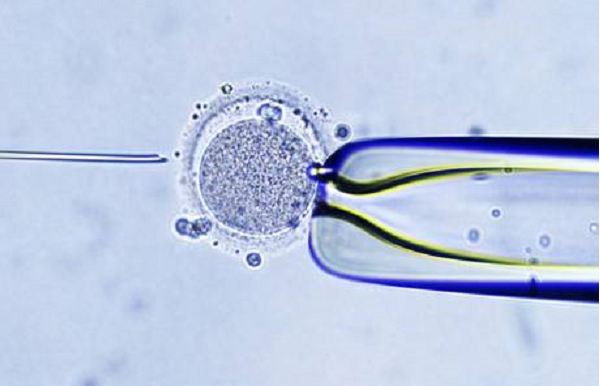It is very possible that the United States may follow the United Kingdom’s lead and sanction the genetic engineering of future generations using technologies that create human embryos with the genetic material of three people. If Americans do not express our concern over these “mitochondrial replacement” (MR) procedures, which are very similar to the cloning technique that produced Dolly the Sheep, I fear MR will soon be offered by fertility clinics here.
If you need some back ground on MR watch this BioTalk video where Chelsea Zimmerman and I discuss MR and how the UK has just approved GMO children.
NMBarry at CatholicStand has posted a call to action. She reports that the Food and Drug Administration (FDA) has asked the Institute of Medicine (IOM) to convene a committee to discuss mitochondrial replacement. The committee is taking public comments. Please let them know how you feel about the genetic modification of future generations. You can e-mail them at [email protected].
Here is the letter I wrote to the committee. Please feel free to use any or all of it. Just please let them know what you think!
Dear Committee on Ethical and Social Policy Considerations of Novel Techniques for Prevention of Maternal Transmission of Mitochondrial DNA Diseases:
CLICK LIKE IF YOU’RE PRO-LIFE!
As a citizen of the United States, I write to express my concern about the genetic engineering techniques collectively called “mitochondrial replacement” or “mitochondrial donation.”
These are misnomers because these techniques are really oocyte or embryo modifications where the nucleus is replaced, not the mitochondria. These techniques are very similar to somatic cell nuclear transfer (SCNT) better known as cloning and carry with them many of the same risks. Several scientists have expressed their concern over the safety of such invasive procedures, and they worry about the health of the resulting children.
I understand the desire for parents to have genetically-related children, but at some point we must be responsible and limit parental desires, favoring instead the health and well-being of the next generation. Mitochondrial replacement (MR) is the intentional modification of children to have the genetic material from three persons. It would also create a germ-line modification; one that would be passed on to future generations.
Many other technically-advanced countries have banned germ-line modifications for good reason. The line that prevents the experimentation on the next generation, and every generation after, without their consent should never be crossed. There are likely many medical advances we could have if we treated human subjects unethically. I believe mitochondrial replacement falls into that category.
Any girl that is conceived with this technique could not help but pass this modification onto her offspring. If there are any deleterious effects, which have been noted in animal studies, she would be placed in the very same position as her mother, struggling with a desire to have genetically-related children, but wary of passing on her modification. The difference is that she would know she was the product of germ-line experimentation sanctioned by the FDA.
Time has proven that the slippery slope in reproductive medicine is very real. IVF, a technique originally designed to help infertile couples conceive, has expanded to a billion dollar industry catering to the desires of the fertile as well, with a menu of choices including sex selection. MR is being proposed in the United States as a treatment for infertility. Note that the focus has already shifted from the child’s well-being to that of the prospective parents. The child bears all the risk in genetic engineering that would be used to fulfill parental desire.
If we allow mitochondrial replacement to proceed to the clinic, it will only be a matter of time before modifications to nuclear DNA will be attempted. With the lack of federal laws regulating the fertility industry, in a few decades, a similar menu of genetic modifications, no doubt, will be available to prospective parents.
Please keep the focus of mitochondrial disease research on treating patients and not on germ-line genetic engineering. As Americans become more wary of genetically modified organisms in their food supply, understanding that such modifications have unintended and possibly unhealthy side effects, it would be unthinkable to move forward with the genetic modification of our children and grandchildren.
If you are in the Washington DC area you can make your opinions known in person. The meetings are March 31 and April 1, then again May 19. The registration deadline for public comment during the March 31 and April 1 meetings is today! Register here.








